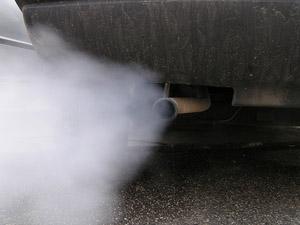The psychology of climate inaction
(Image: Flickr user Simone Ramella (cc: by-nc-sa))
Scientists have made it clear about climate change: Warming is unequivocal, and very likely due to humanity’s actions.
But you wouldn’t know that from the debate on Capitol Hill. Consider these comments from Oklahoma Senator James Inhofe and California Congressman Dana Rohrabacher.
"You let me just once again state my belief, that global warming is an alarmism and it’s a type of a hoax," said Inhofe.
"Wake up America, we haven’t had any global warming for ten years!" said Rohrabacher.
Now psychologists are turning their attention to the great divide between science and public opinion on climate change.
Professor Robert Gifford, at the University of Victoria in British Columbia, led a task force studying global warming attitudes for the American Psychological Association. Gifford sees a telling parallel between those who doubt climate change, and those who ignore health warnings about smoking.
"Early on in the smoking campaign, it was learned that people reduce what we call cognitive dissonance in one of two possible ways," said Professor Gifford. "You’re told that smoking is bad for you, but you’re addicted to cigarettes. You have two choices. You can either stop smoking, which is very difficult; or you can change your mind about smoking, which is easier.
"So, in terms of climate change, it’s the same thing. You’re told it’s a problem, so either you can change your behavior, which, because of all these different obstacles is difficult – or you can change your mind. So, it’s fairly easy to listen to the radio commentators who tell you it’s not a problem. It’s comforting, because it’s easier to change my mind about it and become a denier than it is to actually change."
Professor Gifford’s team is focused on the portion of the population who accept that climate change is real, but have a hard time grasping why there should be a sense of urgency attached to it, "Very roughly if you look across different countries including the U.S. and others, figure about twenty percent of the population is what you might call a denier or hard questioner. But the other eighty percent are people who say yes, it’s really a big problem, but, but, but.
"The eighty percent are willing to change, but they don’t know how, they don’t know why and they have other barriers such as the one that I call conflicting goals and aspirations, which is climate change is not the only goal that people have. They’re also worried about their health, their children’s safety. And some of these other goals trump climate change, and again it’s gonna take some time to really hit home."
His report lists several reasons that might explain why many people accept that climate change is real, but don’t really feel the need to do anything about it.
"One is just a sense of uncertainty. There is unavoidably a little bit of uncertainty about just when and where and what is gonna happen. Second, there’s mistrust in some people of scientists and policy makers.
"Next up, people sometimes think that what they do won’t have much affect. Then there’s something called optimism bias and that is as part of healthy functioning we tend to be overly optimistic about a lot of things. We think that – something like eighty five percent of people think that they’re more intelligent than average. A majority of people think they’re better looking than average. It’s psychologically healthy to be optimistic, but when you apply this to climate change, "well, don’t worry about it, mother nature will take care of it," etc, you can see where optimism can be a bias that doesn’t work very well."
Habit is another barrier, said Professor Gifford. He thinks psychologists can help both scientists and the public connect on the issue, "This is one of the main roles I think that psychologists can play on both sides — helping the scientists understand that lay people don’t always understand or accept what they say instantly and on the other side, helping lay people to understand how scientists work and how they think and what they’re doing."
"When people feel that they’re part of a positive movement, they’re happy to join in," he says. "So you get a kind of tipping point effect at some point. It’s what everybody is doing. And people reward each other in subtle ways for sharing that goal."
Hosted by Steve Curwood, "Living on Earth" is an award-winning environmental news program that delves into the leading issues affecting the world we inhabit. More "Living on Earth."
Every day, reporters and producers at The World are hard at work bringing you human-centered news from across the globe. But we can’t do it without you. We need your support to ensure we can continue this work for another year.
Make a gift today, and you’ll help us unlock a matching gift of $67,000!
